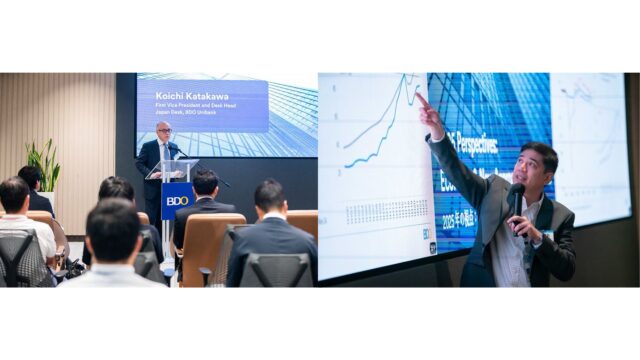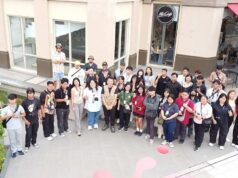
The Philippine economy stands out as a global outperformer, bolstered by robust domestic consumption and a favorable demographic profile. Despite facing global headwinds, the nation continues to demonstrate remarkable resilience and growth potential.
Dante Tinga Jr., Senior Vice President at BDO Unibank’s Investor Relations Group, highlighted this optimistic outlook during an exclusive economic briefing for BDO’s Japanese clients.
Addressing an audience of over 80 executives from Japanese companies, Tinga underscored the critical role of the country’s young, growing population and strong consumer spending in driving economic performance, showcasing the Philippines’ capacity to sustain growth amid global uncertainties.
The country’s young, fast-growing population underpins its economic resilience. With half of its citizens aged 25 or younger and an annual population growth rate of 1.6%, domestic consumption has remained strong. Household spending has surpassed pre-pandemic levels, fueled by a resurgence in overseas labor deployment, which exceeds pre-pandemic numbers, and a steady flow of remittances from abroad. These inflows continue to strengthen the purchasing power of Filipino families, driving consumption-led growth.
Inflation in the Philippines has returned to the Bangko Sentral ng Philipinas’ (BSP) target range, opening the door for potential monetary easing. Stabilized rice prices, supported by government measures such as reduced import tariffs, have contributed to price stability. As a result, BSP is expected to lower interest rates cautiously, creating a favorable environment for business investments and improved consumer confidence.
Globally, easing monetary policies—including the U.S. Federal Reserve’s push to lower interest rates—align with local conditions, further supporting economic recovery. Lower rates are expected to reinvigorate private sector investments, boost business sentiment, and potentially accelerate the Philippine economy to its pre-pandemic growth trajectory.
On the international front, the Philippines must navigate risks such as potential U.S. fiscal policies under the upcoming Trump administration and the effects of a stronger dollar, which could make imports costlier and weigh on the peso. Moreover, while the Philippines excels in services exports and benefits from significant remittance inflows, there is an urgent need to upskill the workforce to stay competitive in an increasingly digital global economy.
Private capital expenditures remain subdued due to previously high interest rates, but with inflation now under control and rates set to decline, the outlook for private sector investment is improving.
Tinga highlighted that the Philippines is well-positioned for accelerated growth, bolstered by resilient domestic consumption, strong household balance sheets, and prudent monetary policies. He also emphasized the importance of understanding the needs of international investors in supporting the country’s economic trajectory. BDO’s Japan Desk, in particular, plays a crucial role in this effort, offering tailored insights and solutions to Japanese businesses navigating the local market. By fostering stronger economic ties between Japan and the Philippines, the Desk underscores its commitment to enabling mutual growth and opportunity.



